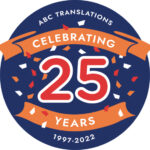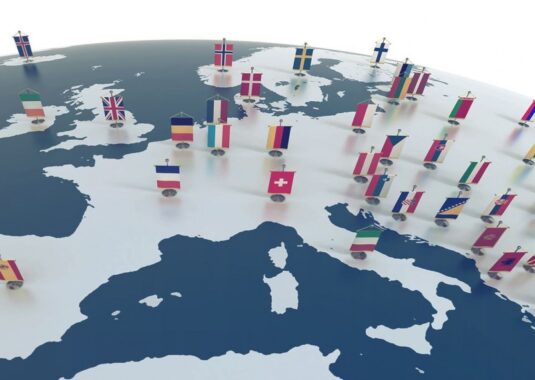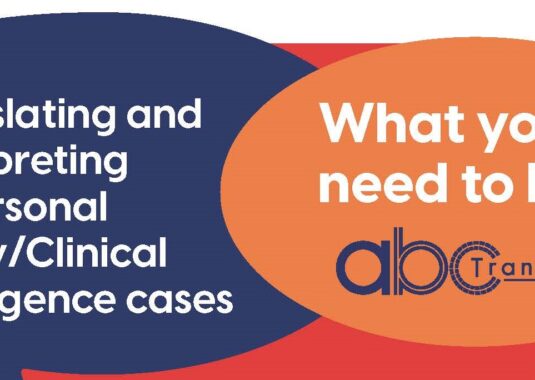25 years on: the impact of technology on ABC Translations
 Technology has, naturally, been the biggest driver of change. We thought we were fairly tech-savvy when we started out – we had a website, email, broadband rather than dial-up (remember that nasty modem noise?) and the latest version of Microsoft Office. However, even then, the bulk of work arrived to us by post, fax and phone, and most of our customers wanted hard copies of translations mailed to them.
Technology has, naturally, been the biggest driver of change. We thought we were fairly tech-savvy when we started out – we had a website, email, broadband rather than dial-up (remember that nasty modem noise?) and the latest version of Microsoft Office. However, even then, the bulk of work arrived to us by post, fax and phone, and most of our customers wanted hard copies of translations mailed to them.
A quarter of a century on, and 95% of documents are received and sent electronically. Moreover, with the recent pandemic even law firms and courts are beginning to accept electronic copies of certified documents. All our files are stored in the Cloud, we use online systems for banking, accounting and credit checking. Our Zoho account incorporates our CRM, project management system, electronic mailing, website chat function and enquiry forms – things we couldn’t have considered back then.
Many more translators now use CAT (computer-aided translation) tools too. These are not the same as machine or automatic translation (think Google Translate) but include translation memory software and terminology management software which allow linguists to reuse previously translated text and automatically search for approved translations of technical and specialist terms. These can speed up the translation process and assure consistency, whilst maintaining the human touch necessary to ensure accuracy of context.
Covid has accelerated the technological changes; no surprise there. For our interpreters, their day-to-day has altered almost unrecognisably. There have always been the occasional telephone assignments, but the vast majority of jobs took place in person: in barrister’s chambers, law offices, courts, prisons, hospitals, conference rooms. Now an online meeting via Zoom, Teams or the bespoke court video service is the norm, and in-person bookings with the associated expense of additional time and travel are much rarer. Longer assignments with multiple attendees will always work better in person, but a short conversation to gather information or explain the meaning of documents can be achieved much more simply.
As for those of us who used to be based in the office, we’ve embraced working from home and continue to do so; it’s made us work smarter and given the team a better work/life balance. Of course, our translators and interpreters have always worked remotely, but it was a definite shift of culture for all in-house staff. Teams has been our lifeline; we ‘chat’ all day, both about work and life in general, share files, make jokes, have meetings via phone and video, answer and transfer calls.
One positive side-effect of remote working is a major reduction in our energy usage as a business. We are now almost paperless, with a corresponding drop in our need for other stationery: pens, clips, staples, envelopes, print consumables. No one is commuting to the office any longer (just as well, with the current cost of fuel!); many more meetings are held online, and those that aren’t are usually accessed via public transport. We’re well aware of our digital carbon footprint though, so we continue to ensure that we don’t send more emails (or copy in more recipients) than required and that our website is as eco-friendly as possible. Digital technology is powerful, but we need to remain aware of the hidden environmental costs.
A couple of the fundamentals haven’t really changed in any material way, though. Attention to detail, thorough proofreading and a good knowledge of our clients are still the cornerstone of our service and always will be. And still of vital importance is the contact between staff, translators, interpreters and clients. We might all be working from home, but we still value our real-life catch ups over brunch to discuss strategy and brainstorm. Even if we have an online quote system, we can still chat to customers by phone. Some correspondence with suppliers might be automated, but it’s always important to have times when we’re including chat about holidays, family, theatre shows we’ve seen, festivals we’re looking forward to. That essential human touch, that makes the work worthwhile. Where technology aids the conversation, rather than hindering it.



